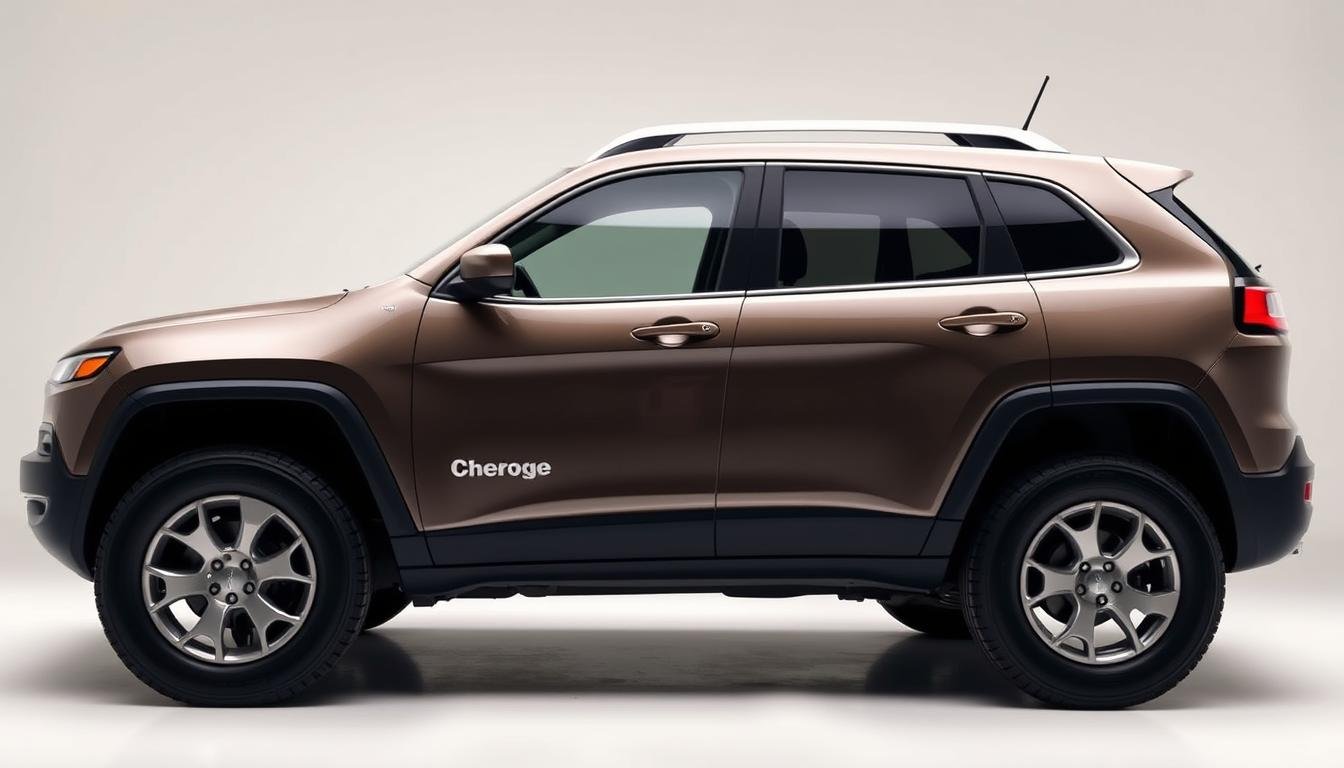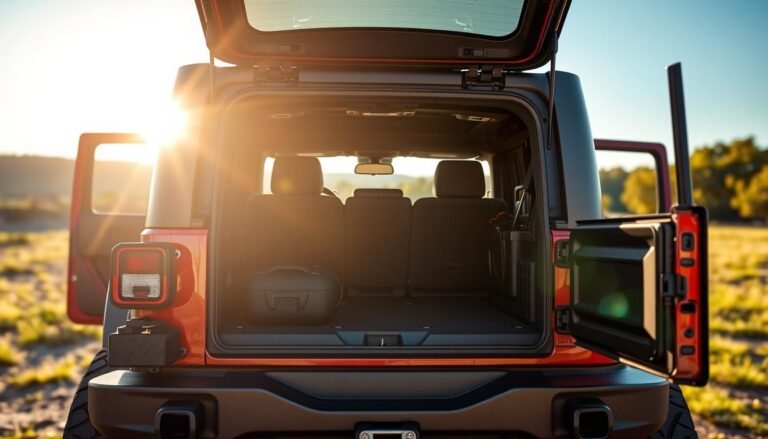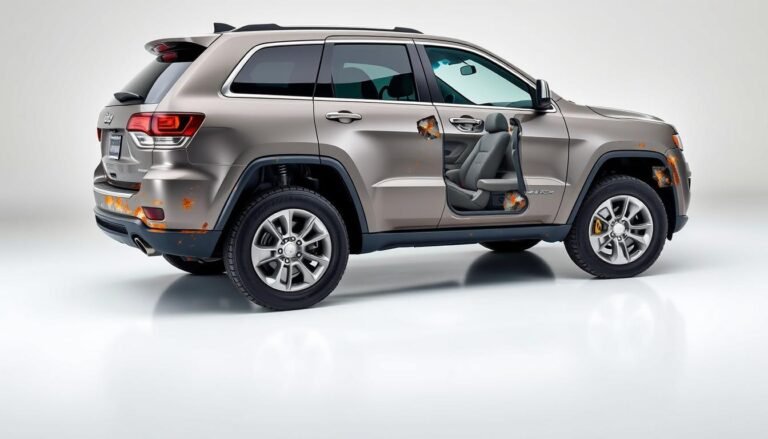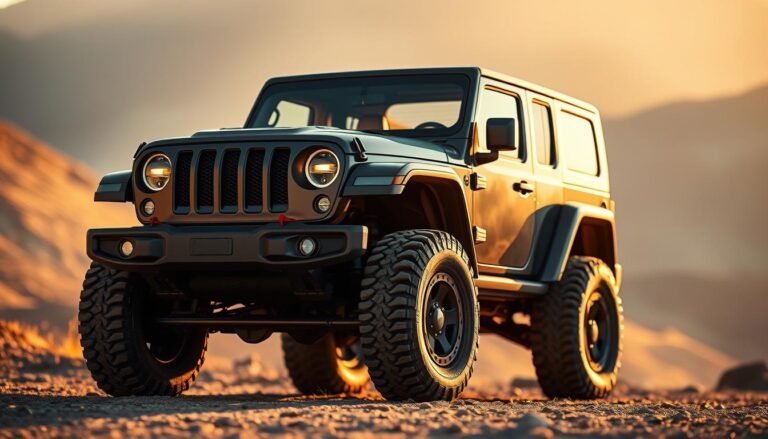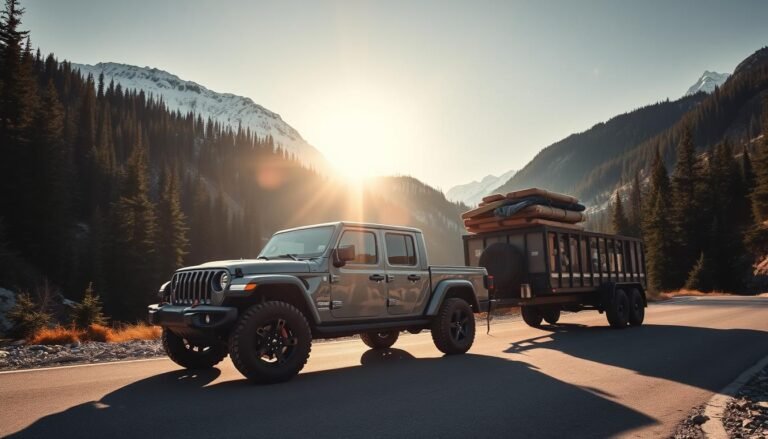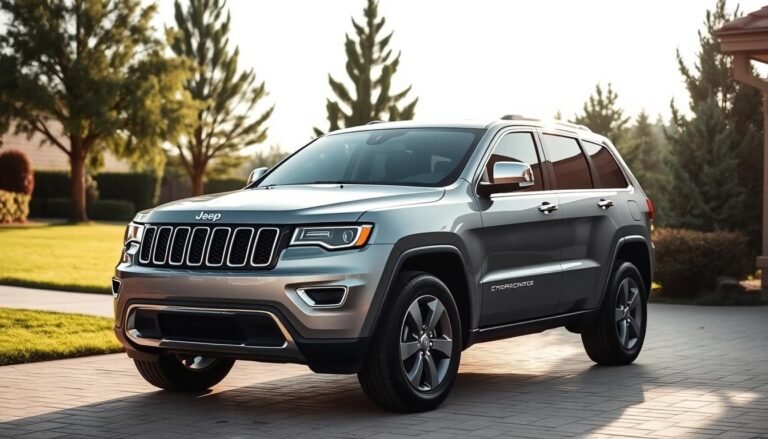Jeep Cherokee Fuel Guide: What Kind of Gas Does Jeep Cherokee Takes?
What kind of gas does Jeep Cherokee take? Most Jeep Cherokees need regular unleaded gas. However, some models might perform better with premium fuel.
Knowing the right type of gas is key to get the best out of your Jeep. Different Jeep Cherokee models have different gas needs.
We’ll look at regular versus premium gas, their advantages and disadvantages, and what affects your car’s fuel use.
This guide aims to help you make the best choice for your vehicle.
What is Jeep Cherokee Gas Requirements?
The Jeep Cherokee needs specific fuel types to make sure its engine runs well. Mainly, it works best with regular unleaded gasoline.
Knowing about the different types of gasoline and their octane ratings helps you understand how they affect your car’s performance.
Regular unleaded gas has an octane rating of 87. This fits most Jeep Cherokee models today. Using the right octane level keeps your engine smooth and avoids damage.
Always look at the owner’s manual to find the exact needs for your Jeep’s year and engine type.
Following the fuel guidelines from the manufacturer helps your engine perform its best. It also makes your engine last longer, giving you a dependable ride.
The Different Models of Jeep Cherokee
The Jeep Cherokee has many models to fit what drivers need and want. You have choices among the Cherokee models, each built for specific purposes.
For example, the standard Cherokee works well with regular gasoline, but the Trailhawk or Limited models do better with premium fuel, improving their performance and efficiency.
Knowing about the different versions of the Jeep Cherokee helps you pick the right fuel for how you drive.
This choice is key not just for getting the best performance, but also for keeping good fuel economy.
When you know the details of each model, you can make smart choices that make driving your Jeep Cherokee better.
What Kind of Gas Does Jeep Cherokee Take?
Knowing the right gas for your Jeep Cherokee helps it run well. This SUV works best on regular unleaded gas with an 87 octane rating.
For some models, premium gas with an octane of 91 or more is better, especially when you’re towing or speeding up a lot.
Overview of Fuel Types
The type of fuel you pick affects your car’s power and how well it runs. Most Jeep Cherokee drivers use regular unleaded gas.
It’s good for everyday use. But premium gas can make your car run smoother and might help your engine last longer by avoiding knocks.
Regular Unleaded vs. Premium Fuel
In choosing gas for a Jeep Cherokee, consider the perks of regular versus premium. This table shows the main differences to help you decide:
| Fuel Type | Octane Rating | Recommended For | Benefits |
|---|---|---|---|
| Regular Unleaded | 87 | All standard models | Cost-effective, sufficient for daily driving |
| Premium | 91 or higher | Models with higher performance demands | Improved acceleration, reduced engine knock |
Jeep Cherokee Fuel Efficiency Ratings
Knowing how well a jeep cherokee uses gas is important. It shows how the car manages fuel.
This affects both your wallet and the planet. On average, a standard engine gets 21 MPG in the city and 29 MPG on the highway.
City vs. Highway MPG
City and highway fuel numbers are different. City driving means more stops and idling, which lowers mpg.
Highway driving often means going at a steady speed, which is better for fuel use. This shows why knowing your main driving style matters for fuel efficiency.
Factors Affecting Fuel Efficiency
Many things can change how your jeep cherokee uses fuel. Important factors include:
- Vehicle Weight: Heavier vehicles use more fuel.
- Driving Habits: Fast driving can use more gas.
- Tire Condition: Low air in tires makes them work harder.
- Weather Conditions: Bad weather can affect how well your car runs and uses fuel.
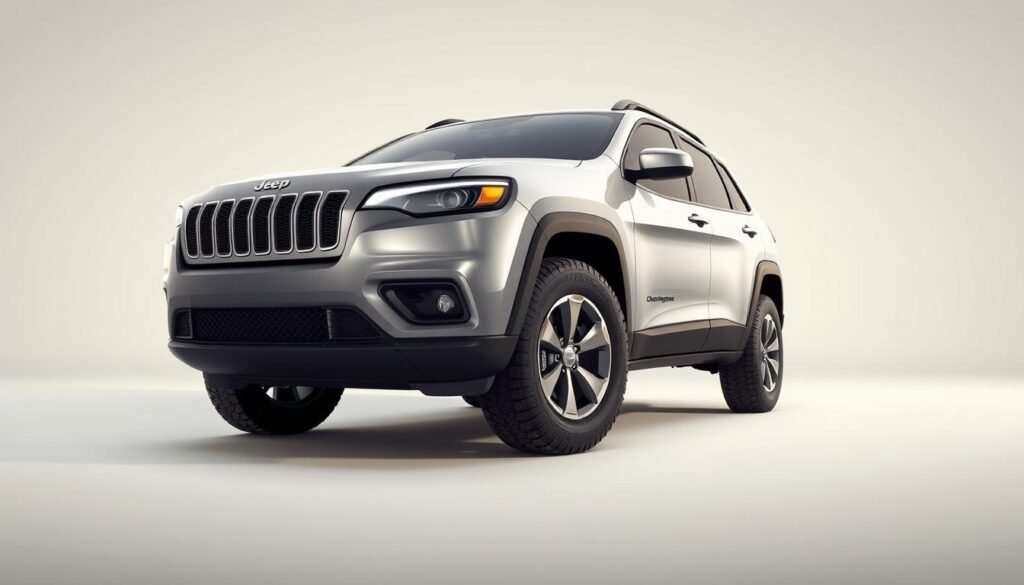
Best Practices For Fueling Your Jeep Cherokee
Keeping your Jeep Cherokee running well starts with knowing how to fuel it right. The kind of fuel you use affects both how well your car runs and how long it lasts.
By always choosing the right fuel, you ensure your ride is smooth, no matter where you’re going.
Using The Right Fuel Type
Fueling your Jeep Cherokee with the correct gasoline is crucial for top performance. Regular unleaded gasoline is best for most situations.
But, if you often drive in tough conditions, premium gasoline could be better. It helps the engine run better, especially when you’re pulling something heavy or driving up hills.
When To Consider Premium Gasoline
Choosing premium gasoline makes sense for hard drives. If you pull trailers or go up steep hills a lot, it can really help.
Premium fuel boosts your car’s power and makes it more responsive, making driving more enjoyable.
Impact of Fuel Quality on Performance
The type of gasoline you use is key to how well your Jeep Cherokee runs. Using top-notch fuel makes the engine work better, giving more power and using less gas.
But, low-quality fuel can hurt your engine, causing issues like engine knocking and more carbon deposits.
If you keep filling up with not-so-great gasoline, your Jeep might face serious problems down the road.
It’s very important to fill up at trustworthy gas stations that offer clean fuel. By choosing the best quality fuel, you keep your Jeep running smoothly for a longer time.
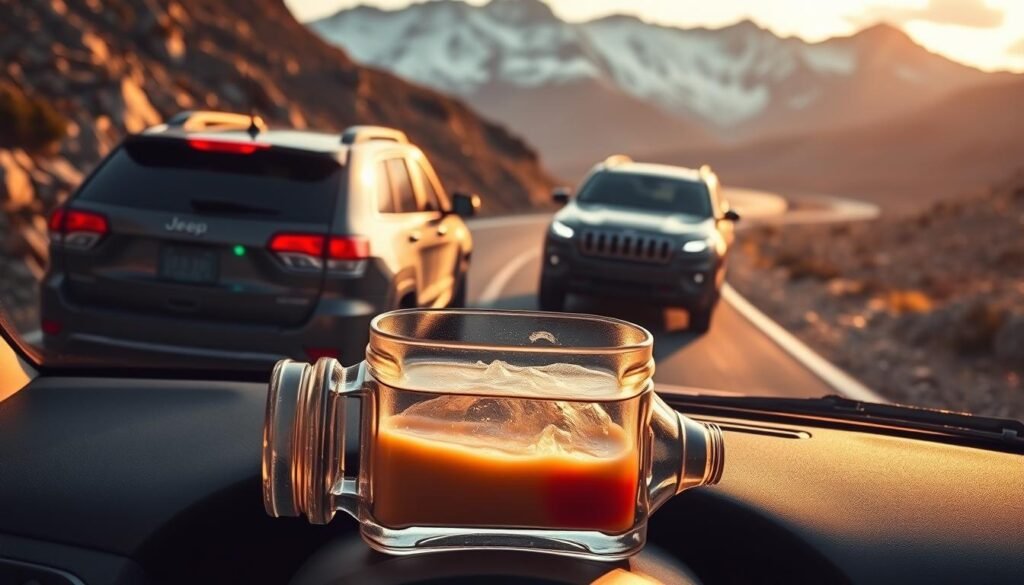
Fuel Tank Capacity and Range of Jeep Cherokee
The Jeep Cherokee’s fuel tank holds between 14.8 and 15.9 gallons. This size is key for figuring out how far you can drive.
On a full tank, you can travel around 400 to 450 miles if conditions are ideal. Knowing your tank’s capacity helps with planning trips.
It lets you pick the best spots to stop for gas. With up to 450 miles per tank, long trips become worry-free.
Good driving habits also play a part in how far you go on a tank. Paying attention to your fuel use makes trips easier and more fun.
Tips To Improve Your Jeep Cherokee’s Gas Mileage
To get better gas mileage in your Jeep Cherokee, it’s not just about the type of fuel. It involves adopting smarter driving habits and keeping up with maintenance.
Here are practical tips that focus on how you drive and taking care of your vehicle.
Driving Habits That Affect Fuel Consumption
The way you drive has a big impact on how much fuel you use. To save gas in your Jeep Cherokee, try these habits:
- Maintain a steady speed on the road to avoid unnecessary accelerations and decelerations.
- Avoid rapid acceleration; gently pressing the gas pedal can conserve fuel.
- Use cruise control during highway driving to maintain a constant speed.
- Reduce idling time; turn off the engine if you will be parked for a while.
- Plan trips efficiently to combine errands and minimize driving distances.
Regular Maintenance For Optimal Performance
Keeping a regular maintenance schedule is key for better gas mileage. Follow these practices to keep your Jeep Cherokee in top shape:
- Change the oil regularly to keep the engine running smoothly.
- Replace air filters as needed to ensure proper airflow and engine efficiency.
- Check tire pressure monthly; under-inflated tires increase fuel consumption.
- Inspect and replace spark plugs to maintain optimal combustion.
- Schedule regular tune-ups according to the manufacturer’s recommendations.
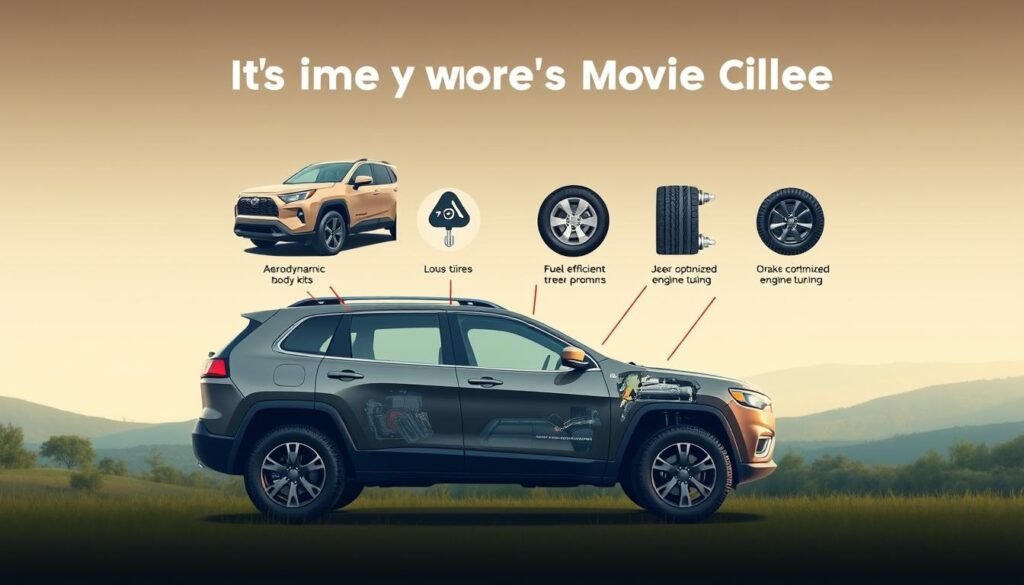
Common Myths about Jeep Cherokee Fuel Use
Many jeep cherokee fuel myths are shared among owners and fans. One common idea is that premium fuel always boosts engine performance.
But this isn’t always true. Jeep Cherokees made for regular gas won’t perform better with high-octane fuel, even though premium gasoline can offer benefits in certain situations.
Many believe fuel economy gets much better with premium fuels. However, for most Jeep Cherokee drivers, using the recommended fuel type is the smartest choice.
It gives a good mix of performance and cost savings. Putting high-octane fuel in a car that’s designed for regular doesn’t mean you’ll get better mileage.
Knowing the truth about these fuel myths can help you decide what’s best for your Jeep Cherokee.
To save money and keep your Jeep running well, it’s important to know what’s real and what’s not. Keep these myths in mind:
- Premium fuels make the engine stronger.
- Using regular gas could harm the engine.
- Not all gas stations have the same quality of fuel.
- Fuels mixed with ethanol can hurt your engine’s performance.
Knowing these myths helps you make wise choices about fueling your Jeep Cherokee. This can save you both time and money.
Alternatives To Traditional Gasoline
Exploring fuel options for your Jeep Cherokee? Ethanol-free gasoline is becoming popular. It’s known for boosting engine performance.
Drivers often notice better fuel economy. This makes it a great choice for your vehicle.
Ethanol-Free Fuels and Their Benefits
Ethanol-free gasoline has several benefits. It’s great for reducing engine wear. Without ethanol, there’s less risk of water in your engine, which prevents damage and issues.
Plus, it offers more consistent fuel quality for better engine efficiency. The cost of ethanol-free gasoline is a bit higher.
Yet, many Jeep Cherokee owners think the benefits are worth it. A smoother, more efficient car means saving on maintenance and fuel in the long run.
| Fuel Type | Octane Rating | Engine Performance | Cost per Gallon |
|---|---|---|---|
| Regular Gasoline | 87 | Standard | $3.50 |
| Premium Gasoline | 91-93 | Improved | $4.00 |
| Ethanol-Free Gasoline | 87-93 | Enhanced | $4.25 |
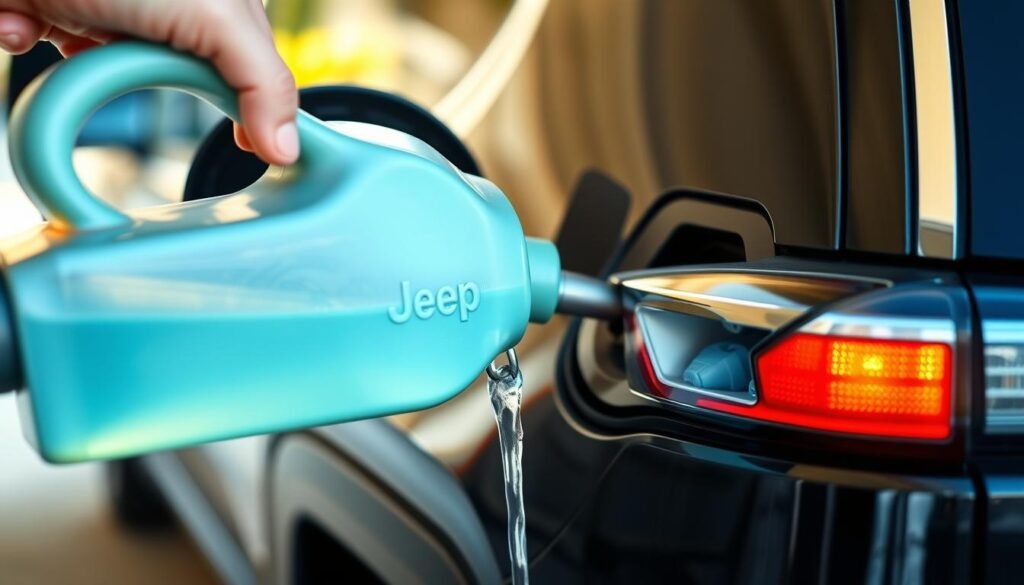
Industry Trends in SUV Fuel Types
The car world is changing fast. Car makers are responding to what people want and the need to take care of our planet.
Gasoline is still top, but options like electric and hybrid SUVs are becoming more popular. This shows a big move towards better environmental care.
Gasoline-powered SUVs are getting better at saving fuel. This helps drivers leave a smaller eco-footprint. It also lets them enjoy the SUV’s power and flexibility.
As these technologies grow, buyers should think about their fuel choices and how they match their green goals.
Knowing about these trends helps you choose the right SUV. You can find one that suits your way of life and helps the environment.
Conclusion
It’s key to know what fuel your Jeep Cherokee needs. This choice boosts your car’s performance and its life span.
Picking the right fuel type keeps your Jeep running smoothly. It also helps you save on gas. Your owner’s manual has all the fuel info you need.
Following its advice means your engine stays healthy. And you’ll visit the gas station less often. Unsure about which fuel to use?
Talk to a mechanic you trust. Adopting these tips will help your Jeep Cherokee last longer. You’ll enjoy driving it for many miles to come.
FAQs
Q: What fuel type is recommended for the Jeep Cherokee?
A: For the Jeep Cherokee, it’s best to use regular unleaded gasoline with an 87 octane rating. Some top-end models might do better with premium gasoline (91 or higher) to boost performance.
Q: How does using premium fuel affect my Jeep Cherokee?
A: Using premium fuel can make your Jeep Cherokee perform better during fast acceleration or while towing. It’s important to see your owner’s manual to know what’s best for your car.
Q: What is the fuel tank capacity for most Jeep Cherokee models?
A: Most Jeep Cherokee models have a fuel tank capacity between 14.8 and 15.9 gallons. This capacity lets you drive about 400-450 miles on one tank under normal conditions.
Q: Can the quality of gasoline impact my Jeep Cherokee’s performance?
A: Yes, high-quality gasoline helps your engine run better, leading to improved efficiency and performance. On the other hand, poor-quality fuel can damage your engine over time by causing knocking and building up carbon.
Q: How can I improve the fuel efficiency of my Jeep Cherokee?
A: You can improve fuel efficiency by driving more smoothly, like keeping a constant speed and not speeding up quickly. Make sure to keep up with your car maintenance like oil changes, air filter replacements, and checking tire pressure.
Q: What are some common myths about using gasoline in Jeep Cherokees?
A: A myth is that premium fuel always boosts your Jeep Cherokee’s performance. The truth is, if your car is made for regular gasoline, premium fuel won’t improve performance, except in certain tough situations.
Q: What are the benefits of using ethanol-free gasoline?
A: Ethanol-free gasoline can give you better engine performance and fuel economy. It might cost more, but it can reduce engine wear and increase mileage, making it a good choice for some.

